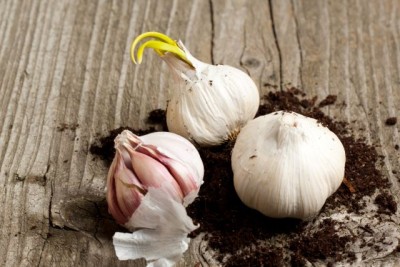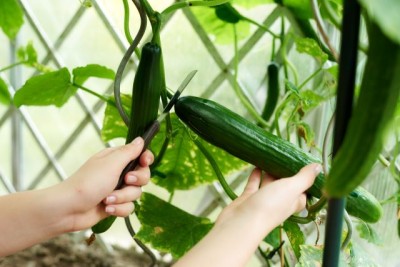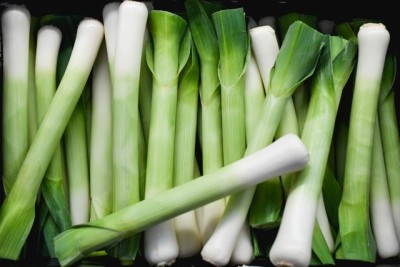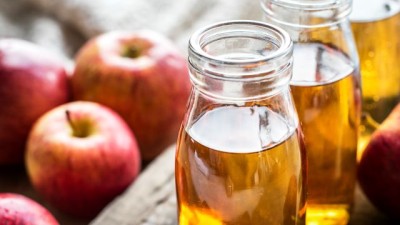14 Uses Of Baking Soda In The Garden
Warning: Undefined variable $post in /home/dietofli/public_html/wp-content/plugins/code-snippets/php/snippet-ops.php(584) : eval()'d code on line 3
Warning: Attempt to read property "ID" on null in /home/dietofli/public_html/wp-content/plugins/code-snippets/php/snippet-ops.php(584) : eval()'d code on line 3
The estimated reading time is 12 minutes
Warning: Undefined variable $post in /home/dietofli/public_html/wp-content/plugins/oxygen/component-framework/components/classes/code-block.class.php(115) : eval()'d code on line 3
Warning: Attempt to read property "ID" on null in /home/dietofli/public_html/wp-content/plugins/oxygen/component-framework/components/classes/code-block.class.php(115) : eval()'d code on line 3
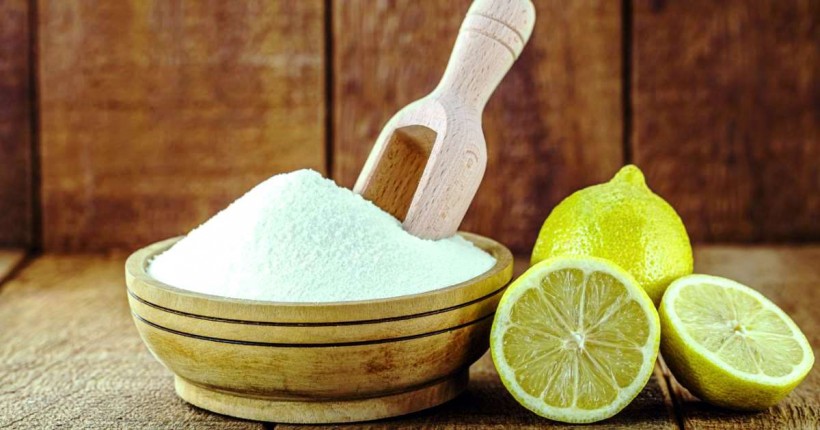
Do you know what does it hide behind the scientific term sodium bicarbonate? Yes, that is baking soda, a natural mineral used in medicine, as a food additive in your kitchen, cleaning product, and in the industry due to chemical compound with the formula NaHCO3.
And yes you can make fireworks experiments with it, it explodes when it is dissolved in acid, you get all the bubbles and this can remind you of that school volcano project!
The baking soda finds its use to remove pesticides from your fruit! When your fruit and vegetables are soaked in the baking soda solution they are safe and clean from all those chemical pesticides. (1)
Baking Soda Benefits
Baking soda is a popular folk remedy that has been used as a leaving agent in our grandmothers’ kitchen, but for personal care and hygiene as well.
So, can you use it to treat your plants? Yes, since fungicide is a specific type of pesticide and baking soda is a proven remedy for washing away the pesticides from surfaces (especially in fruits and vegetables). So why not use it for destroying the fungal disease that is causing the disease in plants?
Baking soda is actually proven to be effective in the treatment of powdery mildew (white mold) and it doesn’t have adverse effects on humans or plants. EPA has already registered it as an effective fungicide for powdery mildew. (2)
How does it work?
Baking soda is more effective in preventing than killing fungi as Dr. Leonard Perry from the University of Vermont states and it is even more effective when combined with horticultural oil. (3)
When you sprinkle in your garden near the plants, it kills or repels the cutworms, the slugs and it is rather toxic for ants and cockroaches as well, but you will probably have to mix it with other tempting food so they can eat it.
What Are Fungi?
They are eukaryotic spore-forming and non-chlorite organisms that cause necrosis of the tissue and distort and change the look of your plants. One study claims that baking soda can prevent fungal diseases in plants by 80 %. (4)
As it is stated, it is very powerful when treating powdery mildew, which is a plague that can attack almost every garden, so every gardener is trying to find a cure for this disease. (5)
It is a white mold, caused by the pathogen Podosphaera xanthii, and in the beginning, you will notice some white spots on your flower’s leaves but it can grow on the undersides as well.
It is very often plants that grow in warm climates that are more susceptible to it such as kalanchoe, begonias, indoor ivies, jade plants, poinsettia, hydrangea, lilac, apple trees, oak trees, zinnia, roses, strawberries, cucumber, squash zinnia, crape myrtle, rose, pyracantha, rhododendron, spirea, wisteria.
This disease comes as in plants that grow in damp and warm conditions, with little sunlight, but although is not fatal for them it can still damage their leaves.
How To Treat Fungus On Plants Using Baking Soda?
Banking soda is a powerful fungicide and affects the ion balance in fungal cells.
The best way is baking soda water solution as a spray, is that simple. It is an organic eco–friendly product and it is the most effective on fruits and vegetables. You can even use it regularly in the spring to prevent the fungi appearance.
You will need:
- One gallon of water
- 2 tbsp baking soda
- 1/2 tsp of mild liquid dish soap (optional)
- Clean spray bottle
Make a baking soda water solution and add the dish soap inside. Stir it well and spray on the plant’s leaves where the disease has affected them, preferably in sunny and dry weather. You can reapply it in 10 days if you see the disease comes out again.
Disadvantages Of Baking Soda Solution On Plants
In case the plant’s leaves start to burn, stop using this solution.
Using the dish soap is optional and can sometimes even damage the plants, so if you see them losing their natural shine, do not use it as a spray ingredient.
If you use it constantly, the soil will start accumulating the soda bicarbonate, which may affect its nutrients and, this will slow down the plants’ growth. It can also accumulate on the plant’s leaves and cause ion toxicity for it. Nevertheless, EPA marks it as a safe product and if used in moderation it can achieve amazing results in the garden.
There are some additional benefits from it and baking soda is great in:
Stimulating Blooming As It Is An Alkaline Product
If you want your geraniums, hydrangeas, and begonias types of flowers to bloom faster, treat them with baking soda solution as they love alkaline soil. You can treat them on monthly basis with a solution made of:
- 1 tbsp of baking soda
- two quarts of water
Killing Weeds In Your Garden
It can kills effectively weeds in your garden. It is a natural product and you do not need to use the chemical products anymore to kill the weeds. Nevertheless, you need to establish a routine in using it, try not to overuse it. Start by putting around paved surfaces, and heavily on the weeds and in sidewalks cracks, but keep in mind that rain and watering may dilute and lower its effects very quickly. You can use a whisk broom to reach the areas that are hard to reach to powder them.
Repelling Insects And Rodents
If you have visitors that cause any problems in your garden like rabbits, baking soda is the real solution. But, you want to chase that rabbit away from your garden’s plants pour the baking soda around the plant, not onto the plant. Make a baking soda circle around the stem of the plant and this will repel the rodents.
If you want to repel the insects, sprinkle on the oil evenly and moderately where the insects cause problems. It is very effective against slugs, snails, roaches, silverfish, and ants.
To make an even more effective repellent against insects, we offer you an organic recipe with baking soda:
All you need is:
- 1 tbsp baking soda
- 1/3 cup mustard oil
Stir the ingredients in one big plastic or glass pot and store it at room temperature. When needed, take 2 tsp of it and mix it with four cups of water. Spray it around the plants, garden paths, or perimeters.
Soil Amendment And Soil Testing
You can make PH testing on your soil using soda bicarbonate. You can collect some soil samples and try the soda bicarbonate and white vinegar experiment.
Pour half a cup of vinegar in one of the samples and if you see the soil bubbling, the soil is alkaline and its PH level is bigger than 7.
If there are no bubbles, test one other sample with a cup of water mixed with 1tbsp of baking soda. If it has bubbles, it means that its PH level is 7 or below, and the soil is acidic. This means that you can amend the soil by sprinkling on the soil surface some baking soda before watering the plants.
Use It For Sweetening The Tomato’s Taste
As mentioned, baking soda improves the acidity of the soil, so you can sprinkle the soil surface around the tomatoes and water them as usual, so they can have a sweeter taste.
Use It To Fight Tomato Diseases
You can use baking soda spray on weekly basis to prevent and treat any diseases or fungal infections in tomatoes.
How To Make It?
You need 2 gallons of water, 2 aspirins, and 2 tbsp of baking soda. Mix it well and leave it for a few minutes to dissolve the aspirin in it. Shake it well and spray it on your tomatoes’ leaves.
Clean Your Plants And Make Them Shine
As photosynthesis is essential for your plants to survive they need a lot of sunshine. You should keep them clean in order to receive the most of the sun they need. So, baking soda is a great cleaning agent and you can use it for cleaning your indoor and outdoor plants. You can do it with a damp sponge or soft cloth. Just dampen them in the baking soda gentle solution of 1/2 tsp of baking soda in 1 l pure filtered water.
Use Baking Soda To Kill Gnats
You can kill those small flying insects that breed frequently. They love the moist soil and gather around any organic matter left uncovered ( usually fruits and vegetables), or around waste and sewage.
You can make an easy homemade spray to repel them easily.
You need:
- few drops of dish soap
- 1 tbsp of vinegar
- 1 tbsp baking soda
- cup of water
Mix this spray and just a few sprays of it are enough to repel the gnats from the place they usually are seen.
Use It As A Plant Perk Up
Some plants love alkaline soil and the list is very long. Flowers that prefer alkaline soil are (but this list is not limited to):
- Lilacs
- Baby’s Breath
- Yarrow
- Bellflower
- Honeysuckle
- Lavender
- Spindle
- Wild marjoram
- Phacelia
- Lily of the valley
Just sprinkling some baking soda in the bottom of the planter will boost its growth. It is recommendable to sprinkle it before planting it into the pot and then fill it with soil.
To perk up the plants stressed up from the heat use it as a rejuvenator.
All you need is:
- 1 tsp baking soda
- 1/2 tsp ammonia
- 1 tbsp Epsom salt
- 1-gallon water
Mix all the ingredients in a container, cover it with a lid and store the spray in a safe place and label it. When you want to use it, take ¼ of it and mix it with 4 cups of water and water your plants and roses.
Cleaning The Clay Flower Pots, Birdbaths, Container, And Garden Tools
If your clay pots have those dirty salty stains on them that are so stubborn, you can make a baking soda paste to rub them and take it off.
You need to make a baking soda water solution and make it consistent as a hand lotion. Rub it on your flower pot, leave it for around 20 minutes and rinse it off.
You can use baking soda and water as a paste or dissolved in water to clean birdbaths, garden tools, and containers. You can use it to absorb the smelly odor off your hands after working in the garden, So, after the thorough soapy wash rub the off with some baking soda.
Baking Soda As A Cabbage Worms Killer
To protect your cabbage and other vegetables in your garden, you can combine plain white flour and baking soda. This dusty combination is a perfect natural cabbage worm killer.
Cabbage worms are small green caterpillars that can easily destroy your garden and are mostly attracted to the cabbage plant family. This family includes Brussel sprouts, broccoli, kale, etc.
So, make a 50/50 mixture of these 2 ingredients and place it in a canister. Dust over the plants that are infected and kill off the cabbage worms, but you should wait for a few days to see the results.
You can also examine the plants by yourself and take out any cabbage worms you see manually.
Baking Soda As A Cockroach And Ants Killer
This miraculous household ingredient used can be used for killing cockroaches and ants effectively. The mixture is quite similar to that used for killing cabbage worms, just in this case you need to use sugar instead of flour.
So, you make a mixture ratio of 50/50 of baking soda and plain sugar and store it in containers and cover it with a lid and keep it away from your dogs and cats.
You can put in small dishes and put the dishes in places the cockroaches and ants usually gather and they will be attracted to it as this mixture is sugary. Use this as a trap and the baking soda will do the trick and kill them.
Baking Soda To Repel Fleas
You live with a pet and your home and garden were invaded by those small black parasites.
Baking soda is a safe and cheap option for chemical anti-flea products, especially if you live with animals and children. This home remedy dehydrates the fleas and kills them.
How To Make It?
So, take an equal proportion of two ingredients (baking soda and salt) and mix them well. Sprinkle it in your garden to repel fleas that have attacked your home or to prevent them from coming. You can use this mixture in your home as well sprinkle it over the carpets, future and bedding and leave it over the night and vacuum it in the morning. Reapply in a few days if you still have issues.
Is Baking Soda Safe For Humans, Plants Pets?
Although it is proven to be very effective in plants, use it carefully and do not use any strong mixtures as they might burn your plants. Also, keep it away from any metal and wiring elements as it causes erosion.
It is a safe product for humans, but you need not take it in large quantities as it can cause stomach cramps, increased thirst and you check with your doctor if this occurs.
It can be also toxic for your pets, so try to keep all the baking soda solutions away from them.
Conclusion
- Baking soda is proven to be effective in the treatment of powdery mildew (white mold) in your plants and it is a very effective natural remedy to use in your gardens.
- You can use it as a water solution or paste to bloom and perk up your flowers, repel insects and rodents, and as a cleaning agent to clean garden tools and furniture.
- You need to be careful when using it and make mild solutions, as strong solutions may burn the plant’s leaves and make some damage to it.

